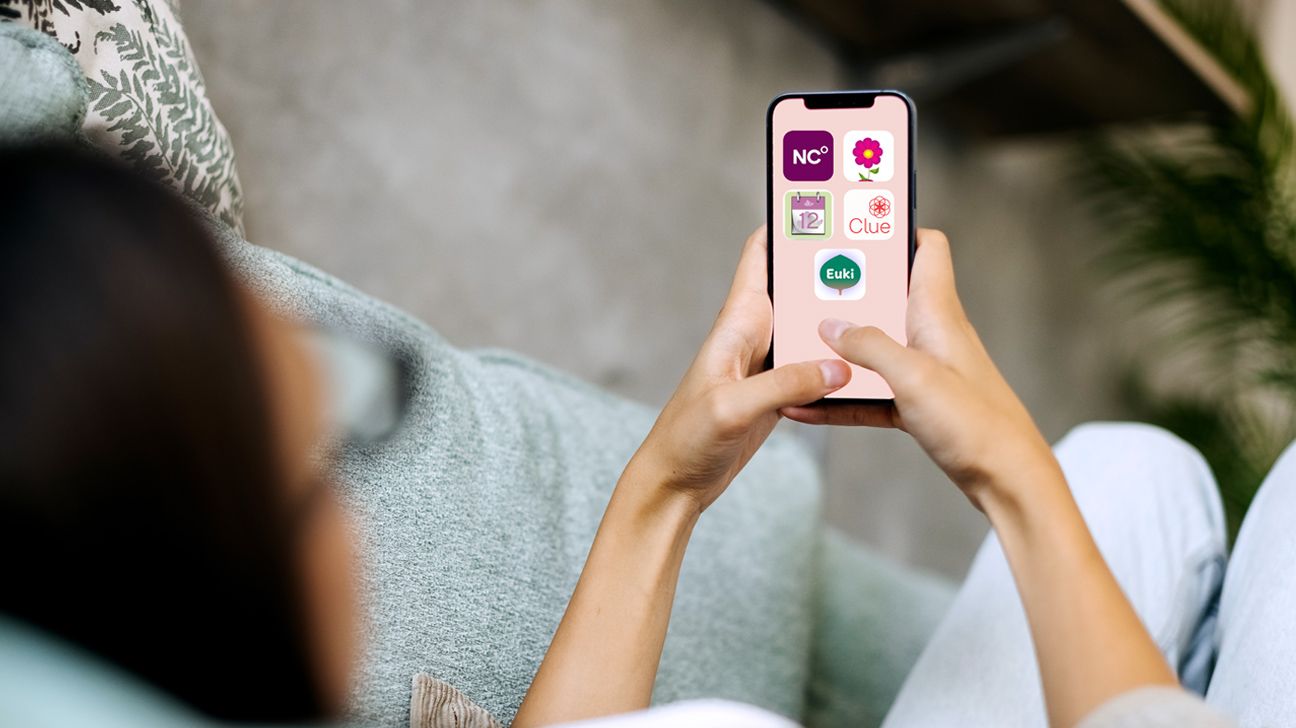Key takeaways
- Fertility tracking can help you time sex or insemination according to your goals, whether trying to get pregnant or avoid it.
- Fertility apps offer features like tracking menstrual cycles, predicting fertile windows, and providing communities for support.
- Some of the best fertility apps include Euki and Clue.
Whether you’re hoping to get pregnant or trying to avoid pregnancy, tracking your fertility can be helpful. If you know your fertile window and when you’re likely to ovulate, you can more easily time sex or insemination according to your goals.
Some people use low-tech methods like tracking on a physical calendar, while others use ovulation test strips or the basal body temperature method.
Another option is a fertility tracking app. Here are four of the best options out there.
Keep in mind
Fertility apps are not 100% effective for contraception. Additionally, people with irregular cycles or certain health conditions may see reduced accuracy. Fertility apps shouldn’t replace medical advice or proven contraceptive methods if you’re trying to avoid pregnancy.
– data is only stored locally
– data is stored on third-party remote servers
– follows EU privacy laws rather than US
– data stored on remote servers
– data stored locally when used anonymously
– data stored on remote servers when used with an account
There are lots of fertility apps on the market, but not all of them are created equal. Here’s what we considered when making this list:
- Privacy. Most apps — not just for fertility tracking, but in general — track and record your data while you’re using them. Some will sell this data to third parties or may use it for purposes you did not anticipate. We prioritized fertility tracker apps that make an effort to respect user privacy through policies like allowing anonymous accounts, limiting data sharing, and more.
- Accessibility: We looked for apps that are geared toward people of all types with varying goals around pregnancy.
- Features. While some apps are more basic and allow for simple data tracking, others have premium features. We included both on our list.
- Reviews. We scoured online forums and user reviews to figure out which fertility apps are most highly rated by real users.
- Cost. Most of the options on our list offer free versions as well as paid options.
Fertility apps are apps designed to help you plan for or prevent a pregnancy, as well as track your menstrual cycle .
By inputting your personal data, including your period start dates, basal body temperature, and notes about bleeding, spotting, and cervical mucus, you can receive individual details about where you are in your cycle and when it would be ideal to try to conceive.
Some apps may also provide a community where you can interact with other users or receive advice and insight from trusted reproductive health experts and professionals.
If you’re trying to get pregnant, a fertility tracking app can provide you with the necessary information to determine your most fertile days.
Not only that, but tracking data such as unexpected bleeding or spotting, irregular bleeding, or unusual mucus patterns can help you note what to ask your doctor.
Additionally, if you’re not trying to get pregnant, a fertility tracking app can help you track when to expect your next period.
Most fertility apps are free to download and use at their most basic levels. However, some might charge additional fees for advanced features and accessories.
Most fertility apps require you to input your data, such as your basal body temperature and the date of your last period, yourself. The information you receive from the app is based off the information you provide. That means they are only as accurate as the data you put in.
While fertility tracking apps can provide useful information to make family planning and cycle tracking easier, they’re never a substitute for individualized care and advice from your OB-GYN.
If you’re having trouble conceiving or are experiencing any unusual symptoms related to your menstrual cycle and reproductive health, it’s important to make an appointment to see a healthcare professional as soon as possible.
It varies. Some fertility apps can be used anonymously, meaning the app doesn’t require you to input identifying details such as your birthdate and email. However, others do require this data.
Additionally, some fertility apps share data with third parties, and some store data on third-party servers.
If you’re concerned about data privacy, it’s important to read the privacy policy for the app you’re considering using.
While sperm can survive for up to 5 days inside the uterus and fallopian tubes, the egg is only viable for 12 to 24 hours after it’s released. Your most fertile days are the few days leading up to ovulation and the day of ovulation.
While there are many fertility tracking apps available, different ones are geared toward different goals, such as trying to get pregnant or to tracking your menstrual cycle.
When searching for the best fertility app for you, be sure to consider your needs and goals. Additionally, it’s important to consult with a healthcare professional if you have any concerns about your fertility.




